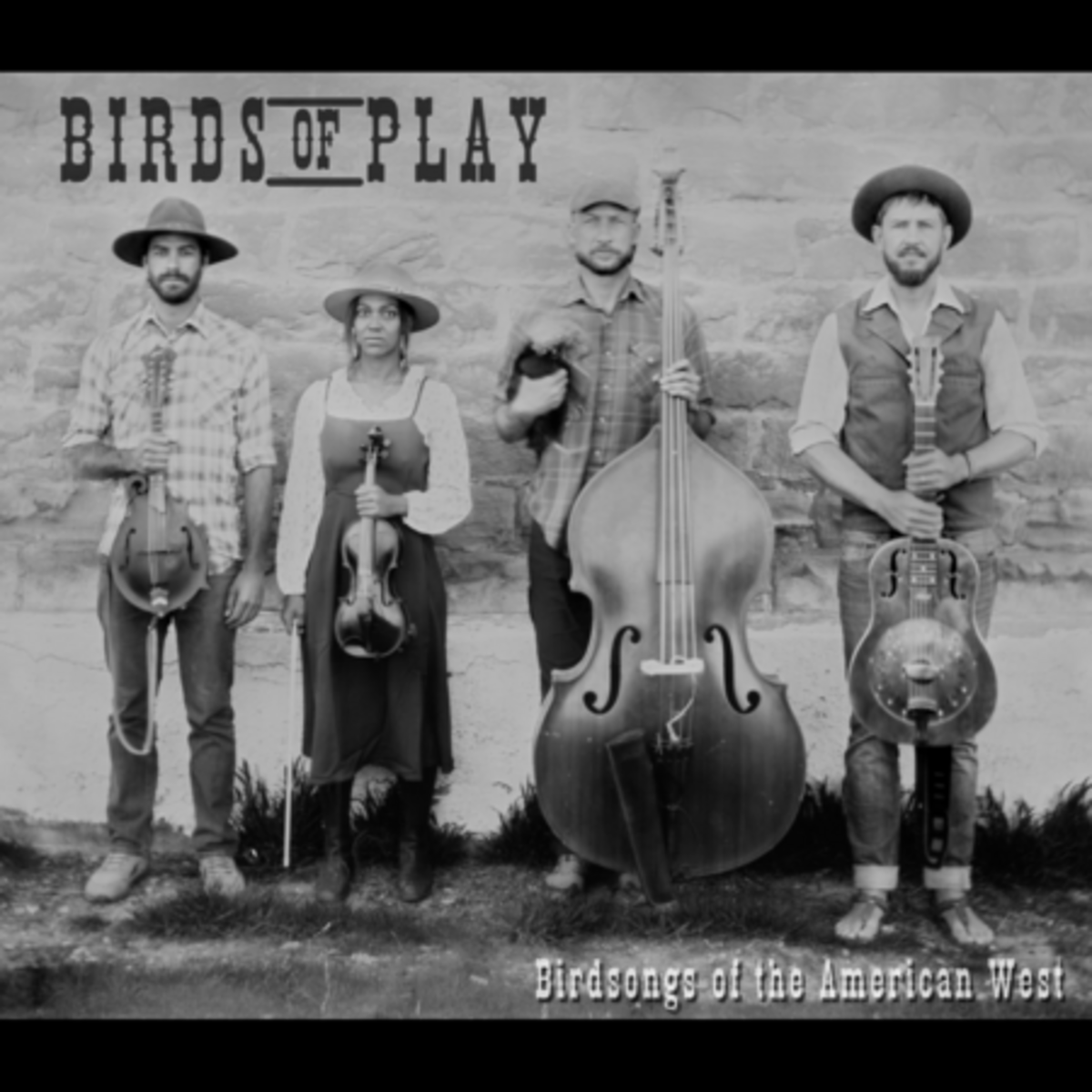
Birds of Play
Birdsongs of the American West
I’ll be honest. I don’t like birds. Don’t come at me. Thanks, Hitchcock. Birds of Play are the exception.
I first heard the band at the Telluride Transfer Warehouse in September of 2021 at the release show for Murmurations, Volume I. I was in town for the Telluride Film Festival, but after years of attending, the appeal was wearing thin. I wanted an escape from the black turtlenecks and seriousness of the film crowd. I bought a ticket online and joined locals opting out of the film scene for something more relatable.
It was clear from the first song that this quartet had a loyal hometown following and something special. I stayed through the last encore, wobbled up the hill to my hotel, and gushed to my roommates about my experience as if I had seen Francis Coppola on the street corner.
Birdsongs of the American West is the band’s fourth and best album to date. After Murmurations, Volume II, I expected things might move in a slightly different direction. The album isn’t a huge departure from the signature sound that won them second place in the 2022 Telluride Bluegrass Festival Band Contest, but it has some lovely surprises, specifically a nice showcase of Anneke Dean’s songwriting and vocal talent on “Stargazer.”
As a band, Birds of Play walks the walk. The songs are clearly inspired by the landscape they live and work in, the one I’m lucky to live in, too. They are mountaineers, canyon crawlers, skiers, river guides, and observers of the vastness as well as the confines of nature. Human nature is also part of this scenario. You and I have questions — existential questions. Birds of Play answers some in this eleven-track exploration and experimentation. Right up front with “Texture,” Alex Paul introduces us to the conversation. “If texture is the language of time/ River-carved canyons speak in eloquent rhyme/ Rainfall the choir of a world intertwined/ This land suggests something divine…” With cover art beautifully produced by Grand Junction’s West Slope Tintypes (including the compulsory chicken, held by Eric Shedd), the old-time feel runs through the album without patronizing nostalgia. The musicianship is both front-porch accessible and razor-sharp. The album was recorded, engineered, and mixed by Derek Jones at the Sherbino Theater in Ridgway, Colorado, and mastered by David Glasser, chief engineer at Airshow in Boulder, a familiar name to those who want the best.
I went through several listens in different environments: my car on a mountain drive, a cross-country flight, and a high-country pasture as cattle barely noticed. The flow of the record makes for easy but not passive listening. Each song lyric gives me something to think about. Jack Tolan’s “Numbers and Names” stands out as one of my favorites. Tolan also wrote “Tarab” on Murmurations, Volume II. It’s a jaw-dropper to hear live, and I expect this track will translate just as well to the stage.
Eric Shedd brings his own “Paradox of Choice” to the album. His delivery is conversational, which is perfect for the lyrics. It’s got a Dylan feel, unfussy, with just enough backup vocal and instrumental fill to give it polish.
Enter Anneke Dean, the classically trained violinist who is clearly enjoying being out of the confines and structure of orchestra work. She can improvise with the best, play extended breaks, and showcase without stepping on toes. Her original, “Stargazer,” is a highlight of the record and one that I’m hearing others bring up often as a favorite. In that first Telluride Warehouse show, with a sea of puffy jackets and not a black turtleneck in sight, I remember her performing this song to the hometown crowd, who couldn’t have been more proud of their neighbor and friend. It’s a stunner. I hear a touch of early Suzanne Vega in her subdued delivery.
I’m entranced by Alex Paul’s writing and co-writing with the rest of the band. He clearly has the Thoreau touch with metaphor, proven on past albums and rising up here on tracks like “Peace,” with playful time signature changes and turnarounds. The key here is playfulness. Birds of Play can bring contemplative lyrics and intense imagery, with a pepper grinder of “let’s just do a little gypsy jam here,” so you can dance it out if so moved.
“Breathe” is another standout for me, as the album winds down. Alex Paul delivers this one as a salve to our exhausted spinning world.
“Don’t forget to breathe.”
It’s a simple reminder. Not everything needs to be rushed. Loud isn’t necessary to get the point across. This record took time. Since I first heard them, I’ve seen growth without compromising focus. Their audience has grown from the core community in Telluride to the fortunate souls who hear them live and leave gushing to anyone who will hear.
These are my favorite Birds. I trust them to deliver gorgeous work. You should, too.












